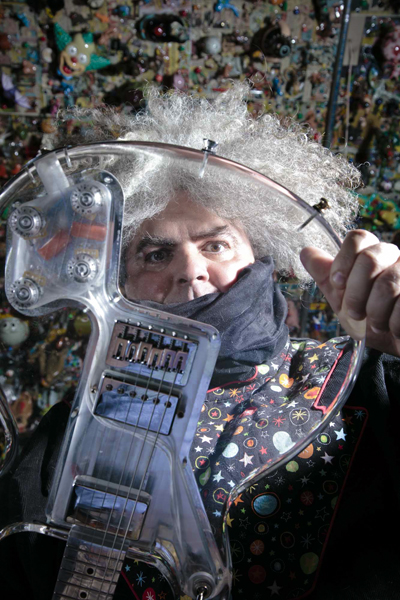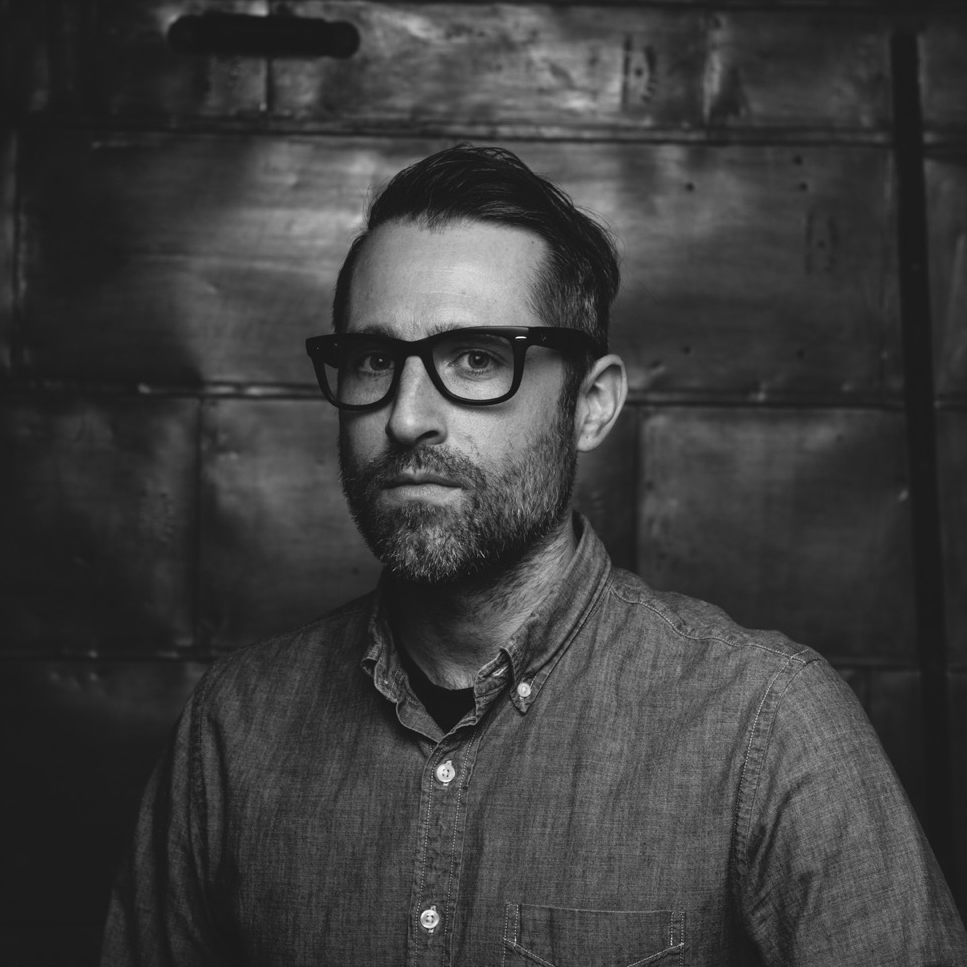Dear Guitar Hero: Buzz Osborne of The Melvins Discusses Aluminum Guitars, Tool's Adam Jones and Growing Up with Kurt Cobain

He fronts one of the most respected experimental alt-metal bands, and he grew up with Kurt Cobain. But what Guitar World readers really want to know is…
From Venom and David Bowie to Throbbing Gristle and Ram Jam, you picked some crazy songs for your new covers record [Everybody Loves Sausages]. How did you go about choosing them? — Marty Groban
We’ve always loved playing covers. When we decided to put this together, we picked songs that influenced us. That’s why a lot of it is pretty old. I was a huge Bowie fan since I was 12 years old. That was the first “punk” rock I got into in the Seventies. I didn’t find out about a lot of the other stuff that was going on, like New York Dolls and Roxy Music, until a lot later.
I lived in a time warp in the middle of nowhere, and there certainly wasn’t internet back then. I didn’t have any friends with hip older brothers either. In the town where I grew up, the older brothers were listening to the Eagles or maybe Jethro Tull. Whatever…I’ll take Tull over the Eagles. Actually, I’ve always thought they’d be a better band if they were called the Spread Eagles. [laughs]
I’ve heard you’re a big fan of Buck Owens. Have you been into country music for a while? — Joe Zucchiatti
I’ve liked country music for forever. And Buck Owens is just one of many country guitarists I like. I think Buck’s Sixties records are really progressive. He used a lot of fuzz bass, and some country fans actually gave him shit for that. His stuff is incredible, and his guitar player, Don Rich, is fucking amazing. That whole band is amazing. I’m a die-hard Buck Owens fan. You know who else loves Buck Owens? Jello Biafra. He’s a huge fan. But new country drives me crazy. It just sounds like REO Speedwagon. I’m not into it. If I’m listening to country, it’s Hank Williams, George Jones, Merle Haggard and stuff like that. If people out there don’t take that stuff seriously, well, they just haven’t listened to it and don’t know what they’re talking about.
Was, or is, the use of drugs ever a part of your creative process? — Chris Lukasik
All the latest guitar news, interviews, lessons, reviews, deals and more, direct to your inbox!
For me—and I am strictly speaking for myself—I’ve never found alcohol or drugs to be anything but anti-creative. Let’s look at someone who was an amazing artist that advocated drug use: Hunter S. Thompson. I would say Hunter S. Thompson’s career was totally destroyed by drugs and alcohol. During the last 30 years of his life, his writing was completely horrible. What can you attribute that to? And we can make a long list of musicians who made a few good records and then had everything collapse because of their drug and alcohol use. Look at the Rolling Stones, who are one of the best bands ever. The last time they did a good record was in the mid Seventies. So for the vast majority of their career the music they made is crap. What else could it be?
In our own band, I’ve only found drugs and alcohol to be a massive problem. That is one of the main reasons why we stop playing with musicians—because they can’t get it together. But am I gonna tell people what to do? I don’t think so. If you wanna get wasted, you should get as wasted as you want. You should O.D. with a giant stockpile of drugs in front of you.
Go ahead! If I were in charge you would have all the freedom in the world to do whatever you wanted. But don’t expect me to pick up the pieces, because you blew it. I would advise you not to do drugs. But if you’re going to do it, I would advise you to go insane with it. The only thing worse than a drug user is a candy-ass drug user. [laughs] Like, “Oh, I’m too much of a pussy to take it all the way.” Then fuck you. I can learn nothing from you! [laughs]
I’ve heard stories that Kurt Cobain used to roadie for the Melvins when you were first starting out in Washington. Is that true, and when did you first meet Kurt? — Miles Hunter Ray
I knew Kurt since he was in little league. We lived in a very small town and we went to school together, even though he was a few years younger than me. What originally attracted me to him was his dark sense of humor. We were kindred spirits. We’d sit in art class and he’d draw perfect representations of the art teacher being killed. We’d laugh our asses off. People don’t really understand that he was a funny motherfucker. He was not just some down, dour drug addict. Nobody laughed more than Kurt, and we had great times together.
I always think it’s funny that people say he roadied for us. Look at him! He couldn’t lift himself out of bed. You think he could roadie for someone? But we all hung out a lot. [Nirvana bassist] Krist Novoselic drove for us for a while. But roadie? We didn’t have a roadie. I didn’t even know what a roadie was until 1990. In order to hire someone to roadie you have to be making money. The first time we made money was in 1988, and that was $200. If we would go to Seattle and play a show and make $160, maybe we’d all go buy everyone a burrito. That’s it. There was no money.
And people also say Kurt tried out for the Melvins. Yeah, right. I’ve never had tryouts for this band, ever. I can’t imagine doing that. We all jammed and played together back then. It was hopeless and stupid and horrific and mind numbing. There are happy memories, but in the end it’s a tragedy. I can’t rewrite history in such a way that makes me feel good about it. Honestly, I wish Kurt would have never become famous and was still alive. I don’t give a fucking shit about any of that [success]. If that hastened his death, it’s the worst thing that could have happened.
I love how Melvins songs always challenge songwriting conventions. Any tips you’d like to share? — Chris
One of my main problems with music is that the basic formula is always the same: verse, chorus, verse, chorus, bridge, verse, chorus, chorus, chorus, end. One of the bands that changed that was the Beatles. If you listen to “Everybody’s Got Something to Hide Except Me and My Monkey.” It’s three verses, bridge, end. That’s not to say you can’t use a normal structure; I just prefer not to do that. I wanna drag people outta the normalcy of music…whatever that may be.
One thing I do is record any idea I have, on my iPhone or whatever. If can’t record for whatever reason, I won’t play new stuff. I’ll play stuff I already know. I don’t wanna fall on something and not be able to record it. I’m so paranoid about that. Another thing I do if I’m trying to come up with vocals is, once you come up with the guitar line, you play guitar melodies instead of vocals and then sing those melodies. That really helps.
You played Les Pauls for years, but it seems since you switched to those aluminum guitars you’ve never looked back. What about those guitars makes them so special? — Adam Thompson
I found those guitars about three years ago. The guys in Isis were playing them. We rehearsed at the same facility in L.A. as they did, and I saw these weird aluminum guitars. I picked one up, and what instantly sold me on it was the neck. It was the same thickness from the headstock to the body. You can’t get that thin of a neck with wood because it’ll break. Plus, I have the hands of a five year old. You look at a picture of Hendrix and he could wrap his finger around a Strat neck like four times, whereas a Strat neck looks like a Precision Bass in my hands.
So I called Kevin Burkett from Electrical Guitar Company and asked if he could make an aluminum guitar that’s a Les Paul scale. And he did it. What people don’t realize is that these aluminum guitars actually have more low end than Les Pauls. They’re wonderful guitars. I have about seven of them. But if you gave me the best guitar and amp in the world, and gave Hendrix the worst guitar and amp…he would still fucking bury me! [laughs] So it’s not just about the gear. Hendrix could stomp you into the dirt even with a five-string acoustic.
I love that the Melvins are always collaborating with people. Adam Jones from Tool always talks about how much he loves you. Have you ever considered recording music with him? — Graham Muttram
Well, on The Crybaby record we did a whole song with Tool called “Divorced.” We’ve done stuff off and on, but Tool’s pretty busy. Adam’s the one millionaire- rock-star kinda guy that doesn’t treat me like a peon. We’re actually friends above and beyond all that, which is nice. I’m not good at networking and I’m not good at parties. I’m the guy that would rather drive to San Diego to see a big rock show than see it in L.A. [laughs] I don’t wanna deal with it! If Adam lost all of his money tomorrow, it wouldn’t affect our relationship at all, thank god. Maybe he and I could get jobs at Starbucks.
Photo: Travis Shinn
Brad is a Brooklyn-based writer, editor and video producer. He is the former content director of Revolver magazine and executive editor of Guitar World. His work has appeared in Vice, Guitar Aficionado, Inked and more. He’s also a die-hard Les Paul player who wishes he never sold his 1987 Marshall Silver Jubilee half stack.

